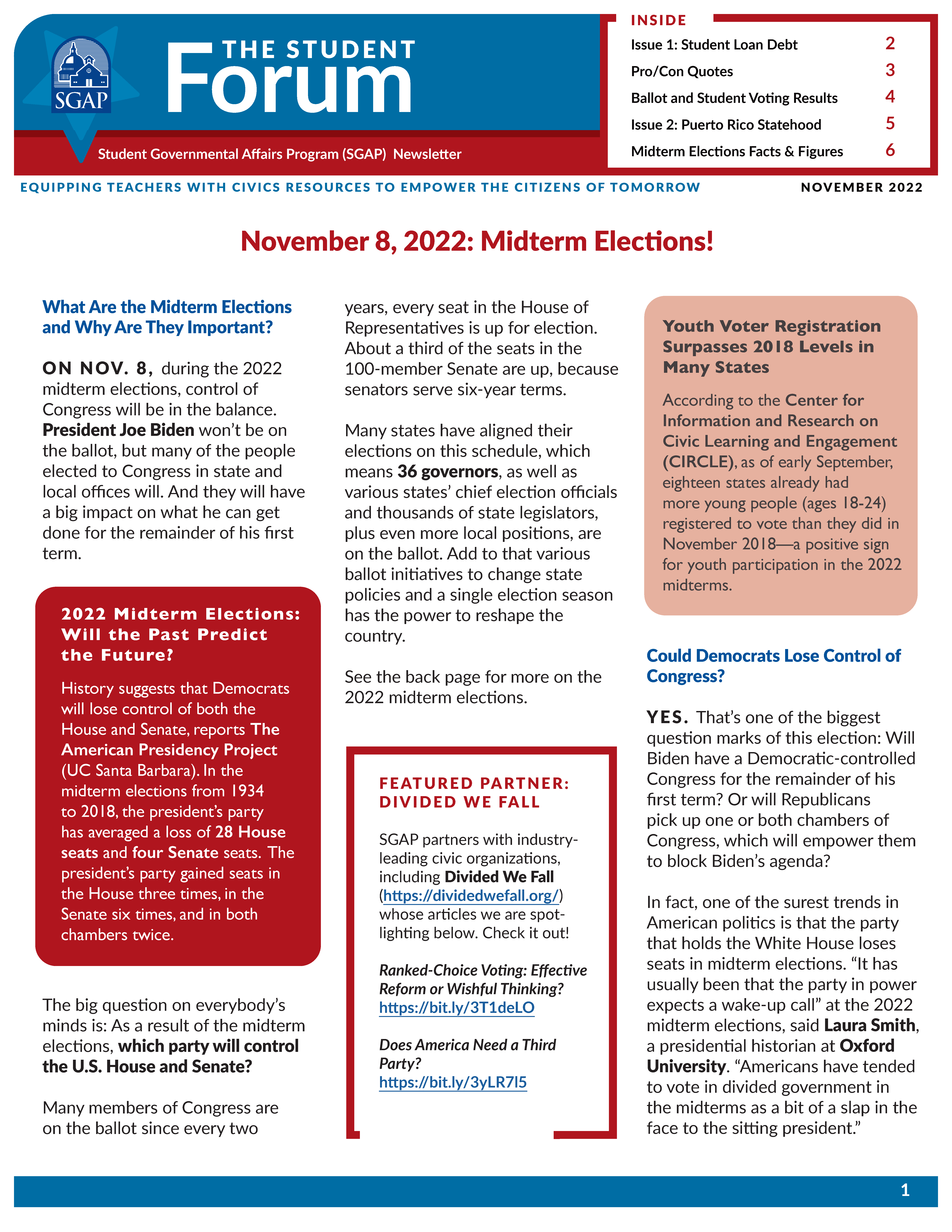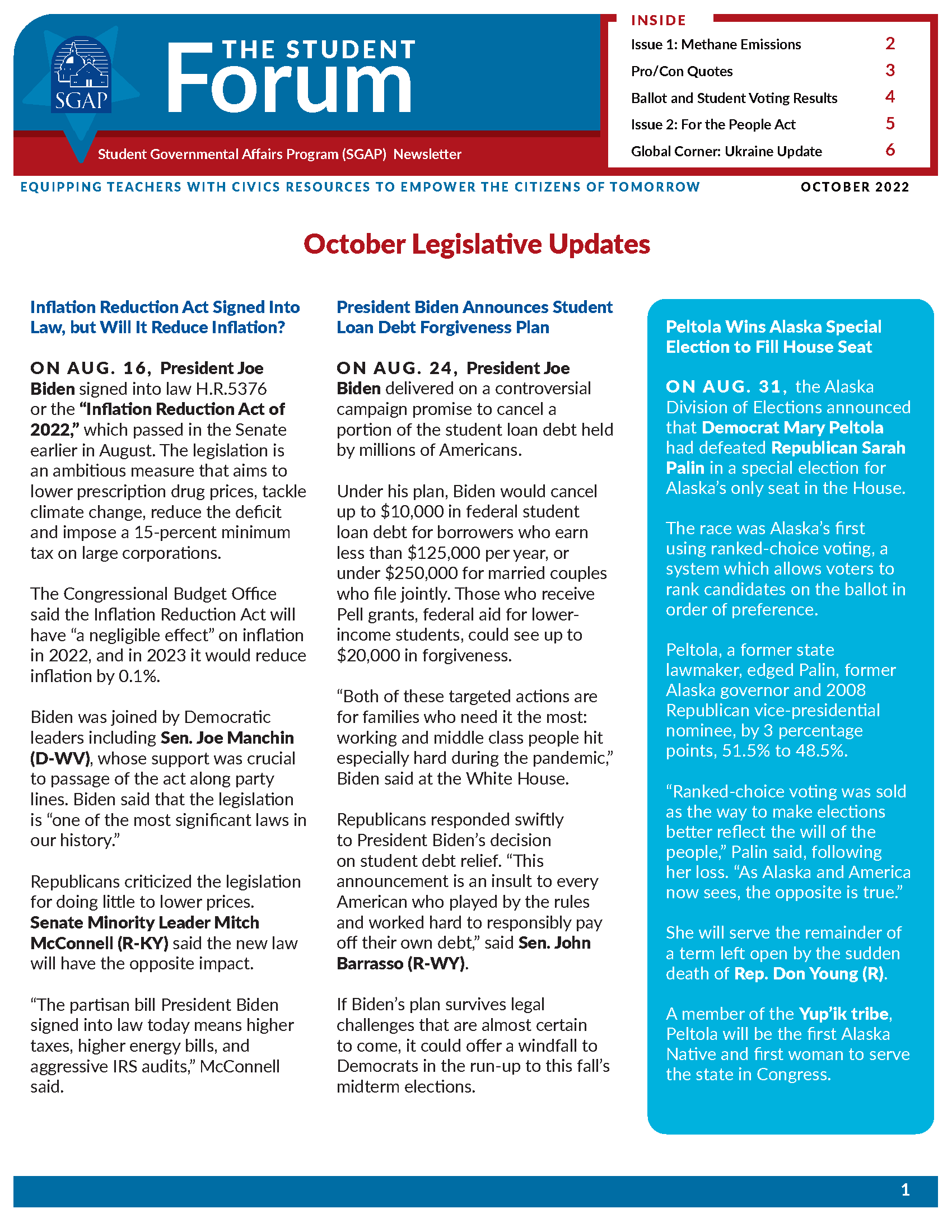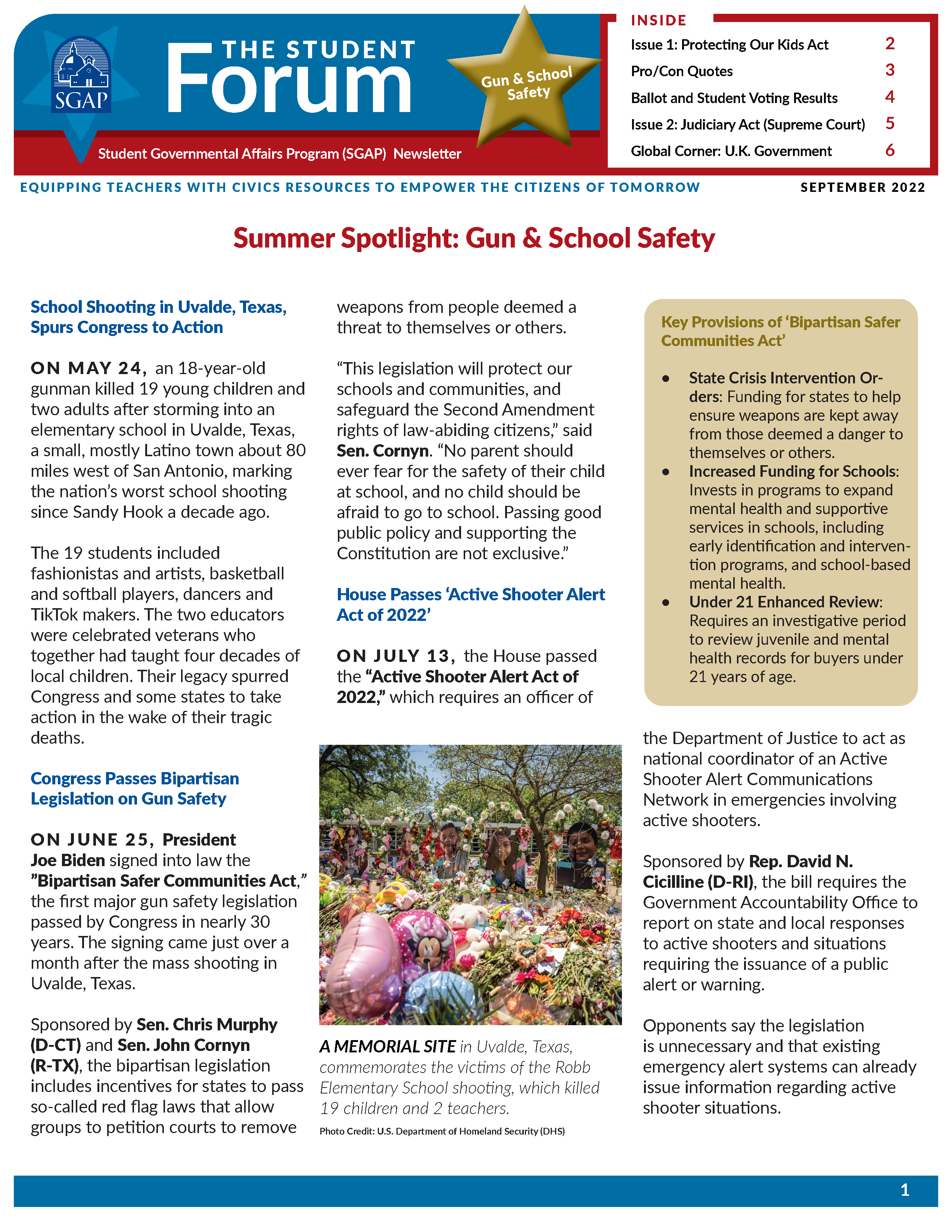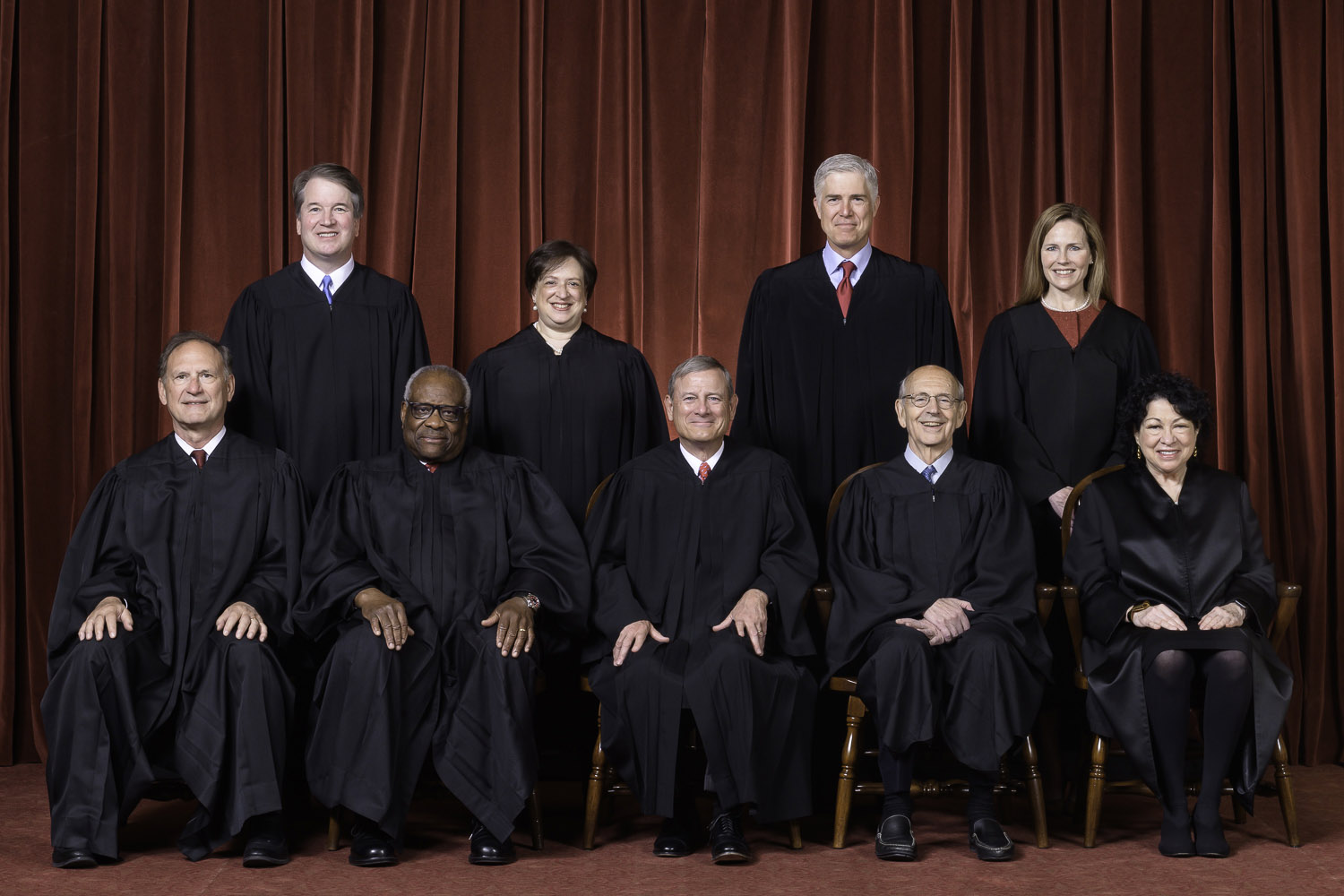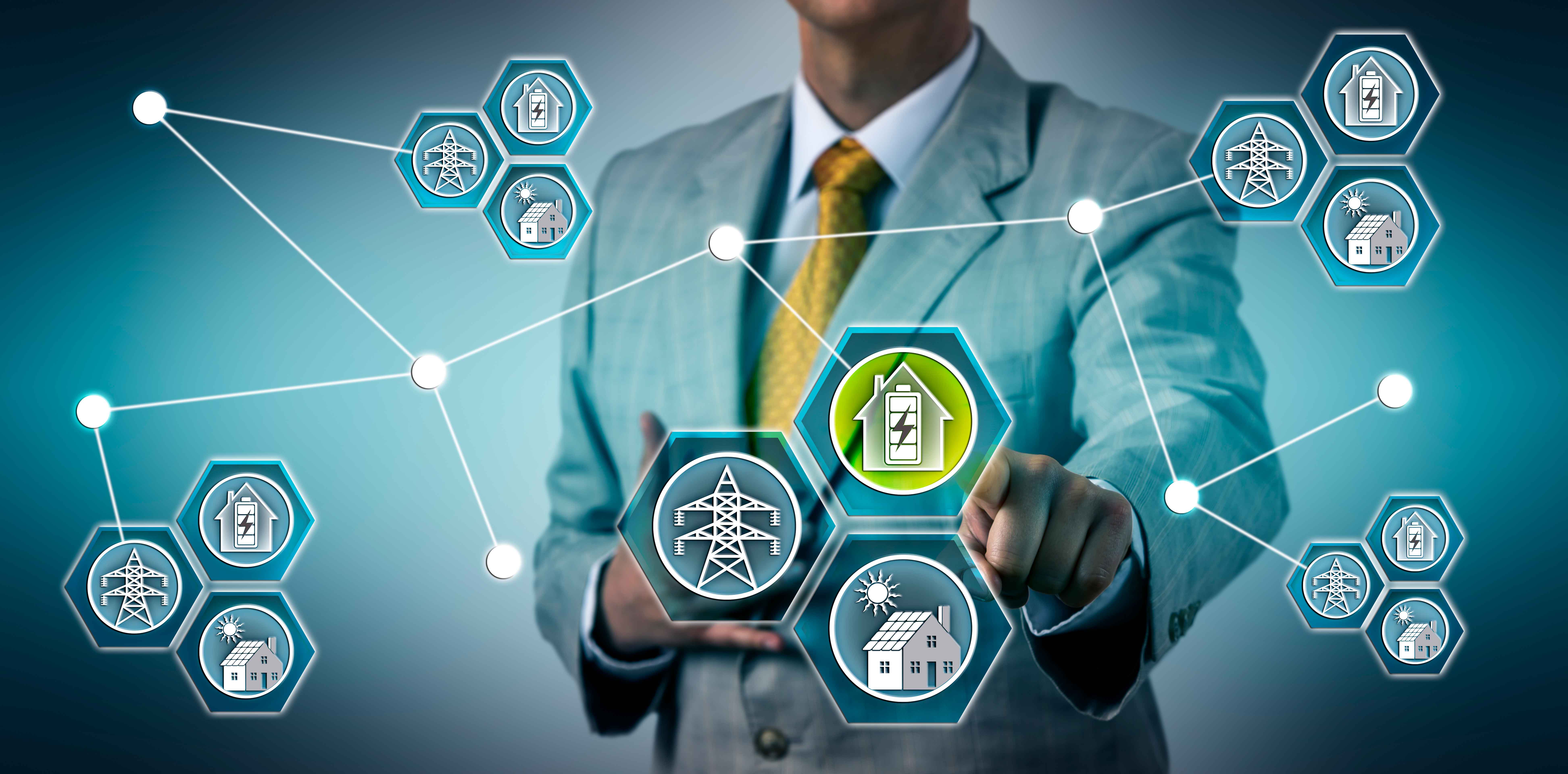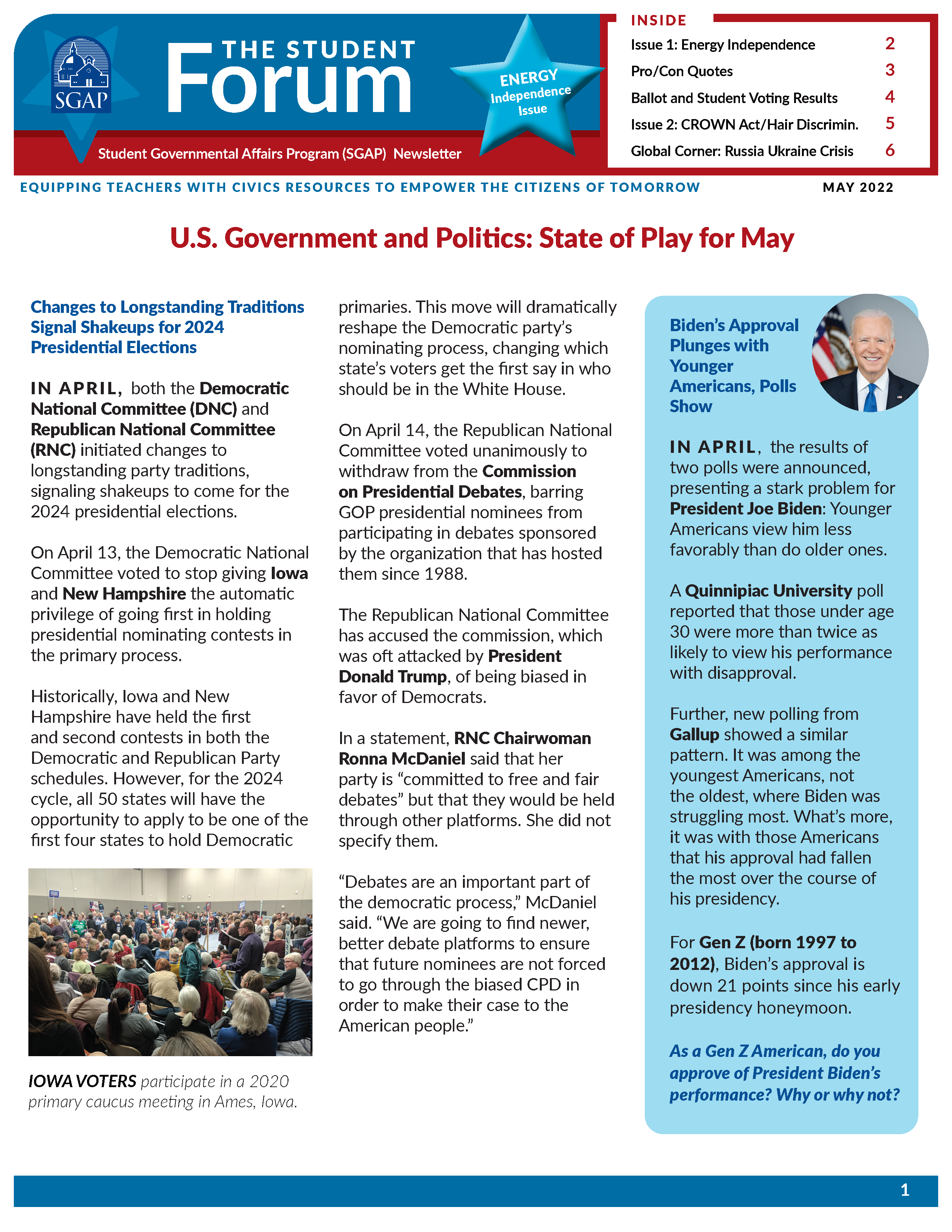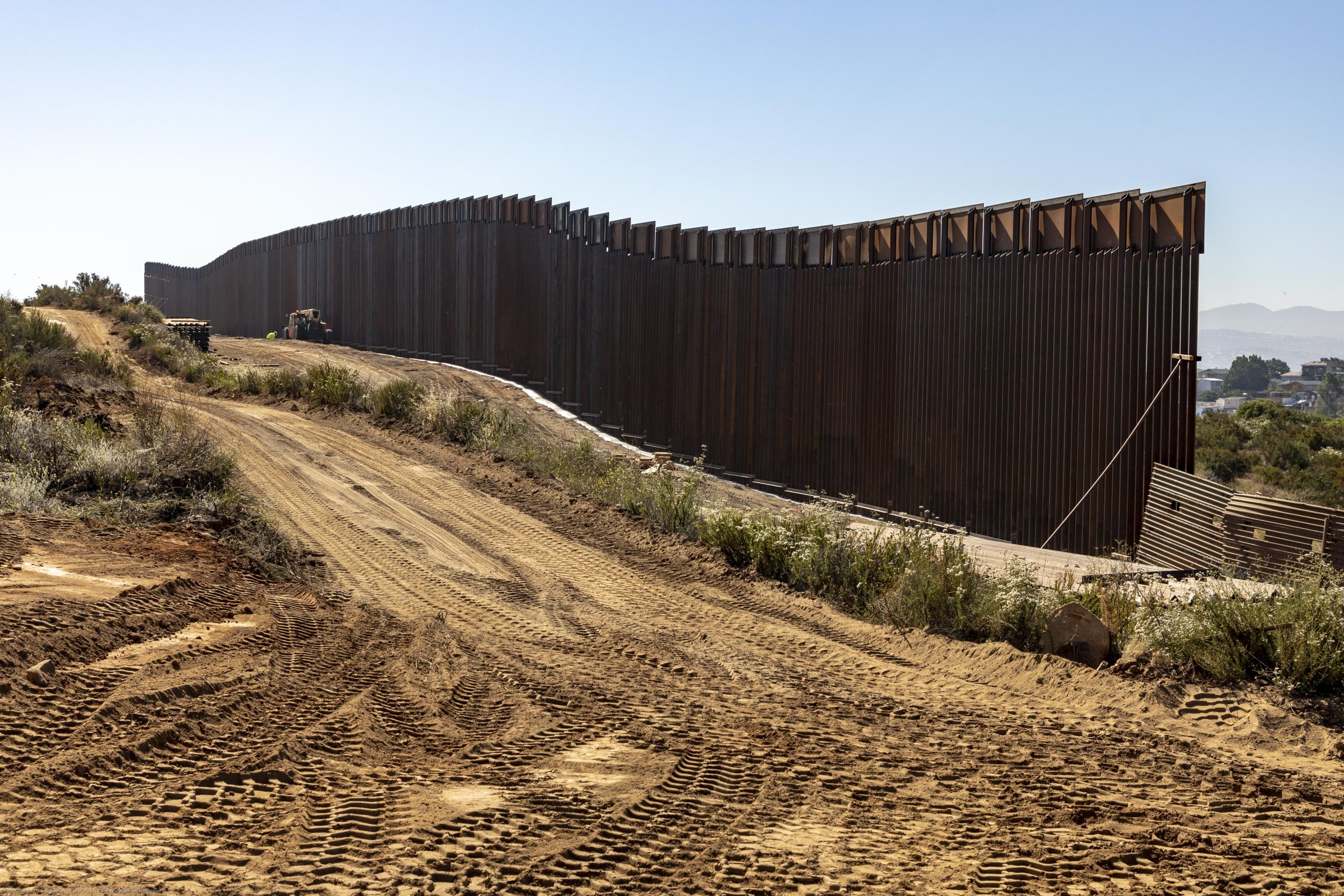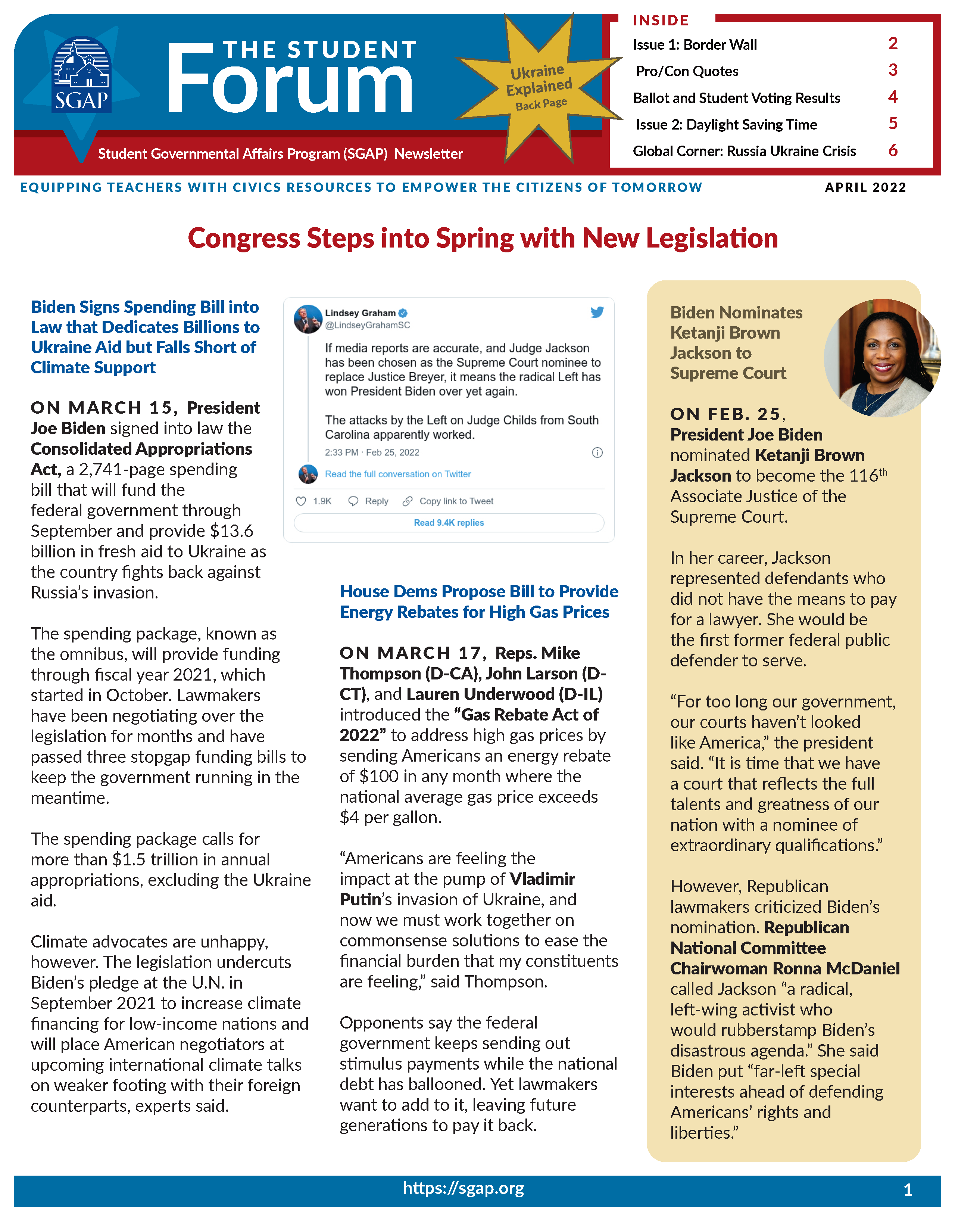RESEARCH LINKS
Issue 1: Student Loan Debt

STUDENT LOAN BORROWERS in the United States owe a collective nearly $1.75 trillion in federal and private student loan debt as of August 2022, according to the Federal Reserve Bank of St. Louis.
Congress.gov: H.R.8729 “Debt Cancellation Accountability Act of 2022”
Congress.gov: S.4483 “Debt Cancellation Accountability Act of 2022”
whitehouse.gov: “President Biden Announces Student Loan Relief 4 Borrowers”
GOP House.gov: “Biden’s Student Loan Giveaway to the Wealthy”
GOP House.gov: “CBO: Biden’s Biggest Executive Actions Come with Price Tag”
Wall Street Journal: “Biden’s Student Loan Forgiveness Plan to Cancel Debt”
Associated Press: “GOP states sue Biden administration over student loan plan”
Issue 2: Puerto Rico Statehood
Congress.gov: H.R.8393 “Puerto Rico Status Act”
House.gov: “Chair Grijalva Introduces Historic Puerto Rico Status Act”
LatinoRebels.com: “Puerto Rico Status Act Stalls in House, ‘Outside Interests’”
House.gov: “Rep. García’s Statement on His Vote on the Puerto Rico Status Act”
PuertoRicoReport.com: “Supporters Rally for the Puerto Rico Status Act”
CRS: “Statehood Process + Political Status of U.S. Territories”
DISCUSSION QUESTIONS
Issue 1: Student Loan Debt
- Should any student debt be canceled? If so, who is “deserving” of cancellation, and on what timeline?
- If all future students were provided with a pathway to a debt-free public college going forward, does that make student debt cancellation more or less reasonable?
- Why is the question over forgiving federal student loan debt so controversial?
- How have the opportunities in the job market for someone with a degree changed in the last 10 to 50 years?
- Is it important to have a significant number of young people attend college, including young people that are going to require loans to afford college?
Issue 2: Puerto Rico Statehood
- Do you support or oppose H.R.8393? If you were speaking to a person who disagreed with you, what would you say is the strongest argument in support of your position?
- Should Puerto Rico be granted statehood? Why or why not?
- What other policies could mitigate the problems seen by proponents of statehood? Explain your answer(s).
- Should any or all of the other U.S. territories be granted statehood? Why or why not?
- What other measures might be considered, if any, to resolve Puerto Ricans’ lack of representation in Congress, citizenship, and other concerns?


